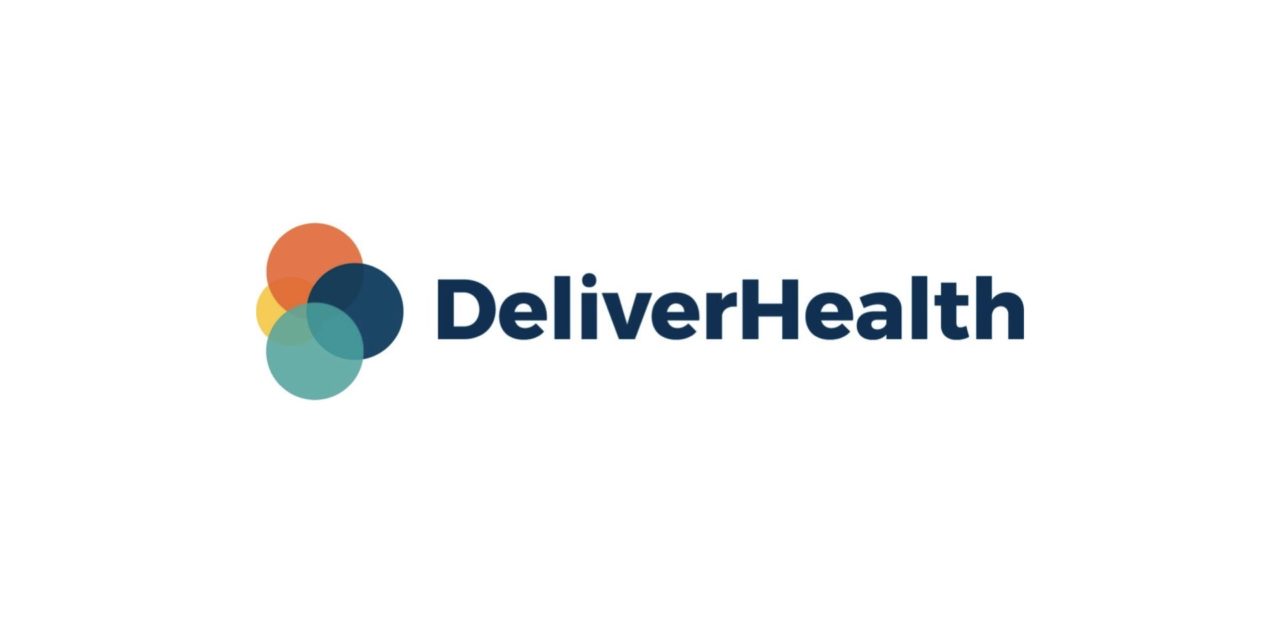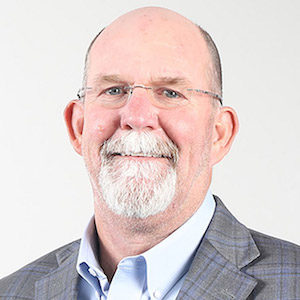
Madison-based DeliverHealth grows

 Launched around a year ago, DeliverHealth is growing.
Launched around a year ago, DeliverHealth is growing.
The Madison-headquartered company spun out of Nuance, a multibillion dollar company based in Boston that’s focused on conversational artificial intelligence.
DeliverHealth, which has a focus on revenue cycle and electronic health record services, counts around 2,000 employees worldwide, with around 60 to 70 employees in the Madison area.
It has an office in Columbus, Ohio after acquiring a company there and is standing up a customer experience center in the Tampa area.
Last month, it acquired PresidioHealth, a San Francisco company.
And the company is looking to grow its Madison operations, which focus on engineering and support services.
“For a young company, we kind of fancy ourselves as a pretty large startup,” CEO Michael Clark said in a recent interview with Wisconsin Health News.
Clark said they aim to simplify healthcare, while cutting costs, increasing revenues and improving quality of care.
He talked more about how the past year has gone for the company, the role it’s playing in healthcare and its growth.
Edited excerpts are below.
WHN: How has the launch gone?
MC: It’s gone really, really well. If you think about what we spun out, we spun out a business that was running every day. So the first goal, as in any business, is: How do you not disrupt the customer? And so while we spun out, we spun out the people, the real focus was no disruption, business continuity.
And then the second goal was as long as we take care of the customer and everything is smooth, which the team did a great job with, now how do we start to stand up our own brand and our own identity? The way to do that every day was to make sure things didn’t get broken and the customer had time to realize who we are and what we do. And then the other piece was in our EHR services, where we literally go in and install Epic. It’s very much large enterprise software installation, implementation, realization. We had $30, $40 million worth of business that we did. So as an example, the first month that we were in quote-unquote business, we migrated Orlando Health to Epic from two other EHRs. We went in and we scaled 750 people over eight weeks to migrate all of Orlando Health. That was a proving ground. With that, we started to stand up our identity: Who is DeliverHealth? What do they do? So every implementation, every project that we did, that’s where we stood up the brand and the identity.
And then the third piece … part of what we spun out was a customer base. We’re in 800 hospitals and health systems. We call them 800 clients. But a client may be Tenet health system. Well, they’ve got 100 hospitals. We’re in all 100 of those hospitals. So we have 800 clients in 2,200 facilities where our technology platform sits. And now, how do we expand that portfolio, bring more products into that platform and expand and grow from there by bringing value to that customer base … Then how do we build up our go-to-market with added products, with standing up the brand and the identity. How do you grow? You get more feet on the street. You go to marketing. And that’s really kind of the phase that we’re in right now.
All along the other part that is just kind of foundational is that we didn’t spin out like as a subsidiary. We had to stand up our own finance and accounting system. We had to stand up our own marketing department. So there was a lot in 2021 of standing up the business and evolving the strategy and now we’re in the execution mode: how do we get the word out, how do we get customer successes, and how do we continue on this capabilities, whether we build it – which we would do out of Madison, that’s the engineering group – we partner or we acquire.
WHN: What is your niche?
MC: The EHR implementation is one aspect of it. I would say it’s a very strategic aspect of it because you’re at the table with the leaders making big decisions at all hospitals and health systems. So when you’re at the table, then the second thing is we know what works inside of Epic or their EHR. And it’s never the technology. It’s always the organizational readiness and the change management. So we’re really in the change management business. So how do we help them change?
And the EHR as the system of record really is for – I think people think of it more as its for the providers, the clinicians, but given that it’s the system of record and now with patient portals, it’s really viewed as the patient access system as well. And so we help tie the physicians and the patients together with the EHR in the middle. In doing that, we have the services or the technology that helps them do that.
So our first acquisition was a mobile, digital engagement platform. And that’s to put in the hand of the physician or in the hand of the patient and give them access to their records, give them digital engagement. So we’re really focused on that, affecting the digital transition. All hospitals say they’re going through a digital transformation … We refer to it more as a digital transition. We’re the enabler for them to over time transition to a more digital engagement with patients or more digital engagement with the physicians. And that’s the change management that we do. And if they’re ready to make the change, but they don’t have the staff, they don’t have the knowledge, we can come in and offer those professional services or simply do it as a managed service and take full responsibility for bringing the technology, the people and expertise to allow them to do that.
WHN: Why did you acquire PresidioHealth?
MC: One of the areas we spun out was in the mid-revenue cycle, from patient access to documentation to coding to clinical documentation improvement to billing. That’s the mid-rev cycle. And we had components of that that we spun out.
So we acquired Presidio as a capability to plug into our DeliverHealth platform. So a physician can document on the platform … We get that documentation on that encounter from the EHR or from our system. The next step is to get it coded – run that documentation through these AI engines that are very purpose-built. They’re built for emergency medicine, hospital medicine, orthopedics, right? And there’s a percentage that can be autonomously coded or with no human in the loop. But that’s a partial solution. We then add the human, or allow the hospital and health system to add the coder, which is the human in the loop, and now they’ve got more capability in one system.
Presidio is a technology company that focuses in on ambulatory and emergency medicine. So we acquired it to plug it into that workflow, bring autonomous coding into that. And then now with that capability, we can move to other specialties beyond emergency medicine and hospital medicine and things like that.
So the health system, they have one less vendor. They have more capabilities on a single platform. And we’re looking for other areas, like case management or clinical documentation improvement, all to put into that single workflow, but bring technology to bear that has a human connected to it that makes it a single experience.
WHN: How much is growing by acquisition your strategy?
MC: Our vision is to simplify the complexities in healthcare. The complexities in healthcare are because a, healthcare is a complex business, but b, you put the EHR at the center and now you’ve got this enterprise technology and you’ve got people using it, but there’s all kinds of other technologies that are used to render healthcare or run the business of healthcare. And so there’s complexities because there’s all these different systems and they don’t all interoperate, right? So what we’re trying to do is say, ‘If you’ve got four different coding systems and you’re already on our platform, why don’t you consolidate to one?’ And simplify that because you no longer need four systems. You get it all in one. So that’s a version of simplifying the complexities.
On the patient side, put a mobile app in their hand, and instead of them having to fill out a paper form where they go into the office or go to a kiosk at the office, can we push that form out in a digital form and they answer the questions on a mobile app before they ever show up and it’s already in the EHR? They’re not wasting time. The physician already has the information. So looking for those complexities and bringing them to a digital engagement that benefits everybody: the patient, the physician, the care teams. Especially now with the pandemic and all the burden and all the burnout that the entire healthcare teams are having, anything that we can take off of their plate is beneficial to them.
So I guess to your question around acquiring – people acquire companies for various different reasons. They may want to acquire it for market share, right? Or a customer base. We’re acquiring for capabilities. We already have the customer base. We either build or buy. And if you build, it takes time. Typically, it’s longer and expensive. And the market’s moving so fast. So some things we want to build, and some things, it’s just smarter to acquire because you can’t be great at everything and you can’t build everything either. It’s a strategic approach to how we expand the portfolio. You kind of make the build-buy decision each time.
WHN: What’s next?
MC: The next steps are to continue to expand the portfolio across that mid-rev cycle and digital health and around the patient engagement, and the two tie together, and finding and continuing with the expansion.
Healthcare is interesting because every hospital executive, the CEO, the CIO, the chief marketing officer, they all have four or five problems on their plate every day. And if you go in and you take one of those problems off or two of those problems off, it’s not like they then sit there with two or three. They get another one. They always have four or five. So our being in the change management business and this tech enablement, we look for the problems that need to be solved, we grab them, we do it and we earn the right to go back and solve another one. And that’s where this mix of professional services and technology really comes in and how we just continue to build the value with that customer base.
This article first appeared in the Wisconsin Health News daily email newsletter. Sign up for your free trial here.





